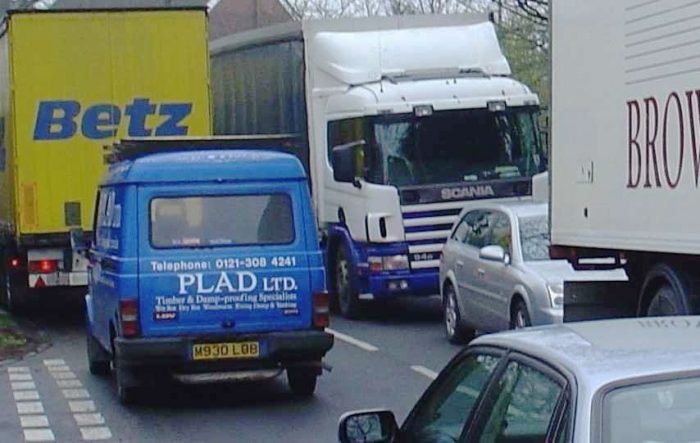 DERRY is the second worst city and town in the North of Ireland for congestion costs.
DERRY is the second worst city and town in the North of Ireland for congestion costs.
Figures out today reveal that the cost of congestion to the economy in Derry was £51 million last year.
Congestion on the North of Ireland’s roads cost the economy more than £1.1 billion last year.
It says that motorists in Belfast – the most jammed-up city – spent 21 hours stuck in traffic during the morning and evening rush-hours in 2017 on average.
The A1 – the main link between Belfast and the border at Newry – was the single worst road for delays.
Today’s report examines traffic flow in cities across the UK.
It found the total cost of congestion to Belfast alone in 2017 was £140m, with Derry second at £51m.
Coleraine came third, with traffic jams costing £38m.
The A1 road in Newry was the North of Ireland’s most congested road with the A23 in Co Down and B38 in Co Antrim coming second and third respectively.
Dr Graham Cookson, chief economist with INRIX, said the costs were shocking, and called for action to free up our roads.
“Combined with the rising price of motoring, the cost of congestion is astonishing – it takes billions out of the economy and impacts businesses and individuals alike,” he said.
“With the Office of National Statistics showing more cars on the road than ever before, we need to consider innovative new approaches to solving the issue.”
The INRIX report took into consideration the value of fuel and time wasted by congestion.
It also looked at indirect costs relating to freighting and business fees from company vehicles idling in traffic that are passed on to household bills through higher prices.
Economist Dr Esmond Birnie, of the Ulster University’s economic policy centre, said: “This is an interesting report based on a mass of international data relating to traffic congestion.
“It confirms everyday experience — congestion is a considerable issue here in Northern Ireland as it is elsewhere.
“There may be room to debate whether the true cost is just as high as this report argues — £1bn-plus — but, for sure, the cost is considerable and this study does not add in an allowance for the environmental impact of congestion.”
Dr Birnie said a range of measures could be taken to cut congestion in Northern Ireland — including more people working from home, variable working times, congestion charges and further infrastructure investment.
He added: “The report implies, as a percentage of the size of the economy, congestion is more costly in Northern Ireland than the UK as a whole.
“It is about 2.4% of GDP in NI, but about 2% of GDP for UK on average.”
Motoring organisation the AA said a range of factors had combined to leave more cars on the road.
A separate study by the organisation recently said that of those drivers commuting more than 10 miles to work, 17% were for reasons beyond their control.
Some 9% of drivers surveyed took on the commute due to their workplace being relocated, 6% because they were made redundant and their next job was further away and 2% because they had to move further out of a city to find affordable housing.
An AA spokesman said: “This report is bad news, not only for the economy, but for drivers who have to go through this daily grind of working their way through traffic to get to work.
“There is an image that is portrayed that drivers are somehow to blame for congestion and that they have an alternative. So we wanted to show what percentage of people were doing the long daily commute not through choice.”
Tags:





